Australia in ‘uncharted territory’ with bushfire risk this summer, with the worst yet to come
Ferocious bushfires burning across NSW and Queensland this week paint a worrying picture of the months ahead for much of Australia.
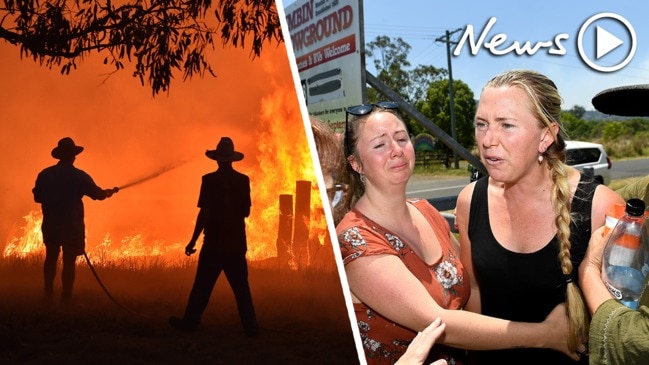
Thousands of firefighters across Queensland and New South Wales have spent several days battling enormous blazes in an unprecedented emergency, but experts warn the worst could be yet to come.
More than one million hectares of land has been scorched by dozens of blazes since the weekend, killing three people and destroying at least 300 homes.
The sheer scale of the fires has already eclipsed major fire seasons, Professor Ross Bradstock from the Centre for Environmental Risk Management of Bushfires at University of Wollongong said.
“The most concerning thing to emphasise is that it’s not over – we’re not even into summer yet,” Prof Bradstock said. “We are now in uncharted territory.”
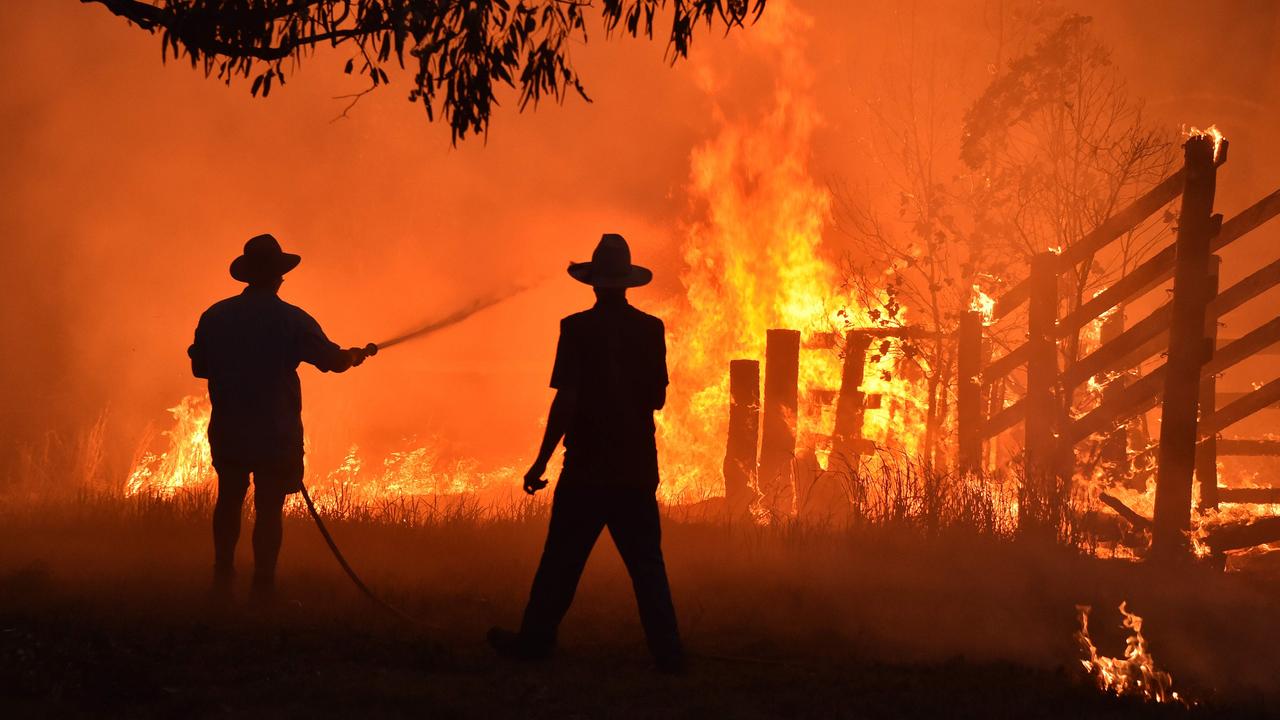
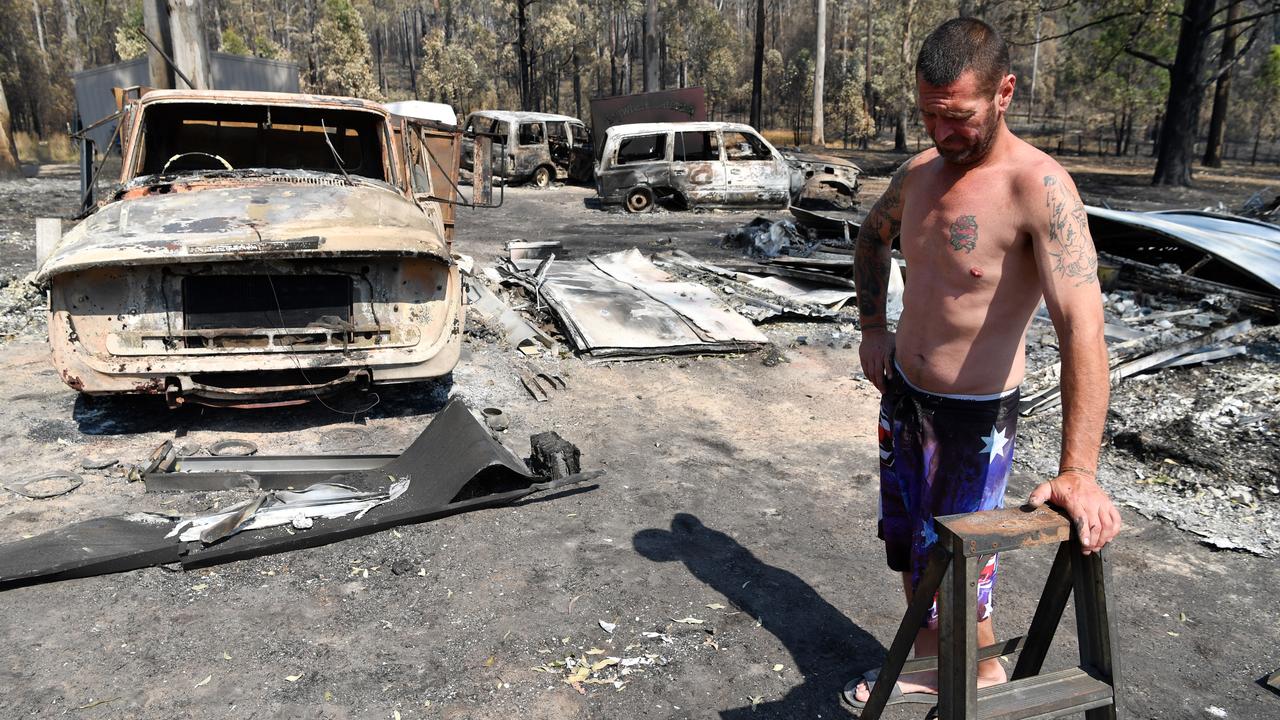
He said a “perfect storm” of danger factors have combined to make the coming months ahead perhaps the most challenging ever seen.
“We’re into an episode of exceptional dryness due to the prolonged drought. We’ve had continual outbreaks of dry and hot weather,” Prof Bradstock said.
“All the ingredients are there for the rapid development of major fires.”
And it won’t just be areas already battling expansive blazes that will continue to be in the firing line.
Bushfire and Natural Hazards Cooperative Research Centre chief executive officer Dr Richard Thornton said the Australian Seasonal Bushfire Outlook released in August painted a worrying picture of what’s ahead.
“It showed above normal bushfire potential along the east coast of Queensland, New South Wales, the ACT, Victoria and Tasmania, as well as parts of southern Western Australia and South Australia,” Dr Thornton said.
RELATED: Thick smoke from earlier bushfires may have saved NSW from catastrophe
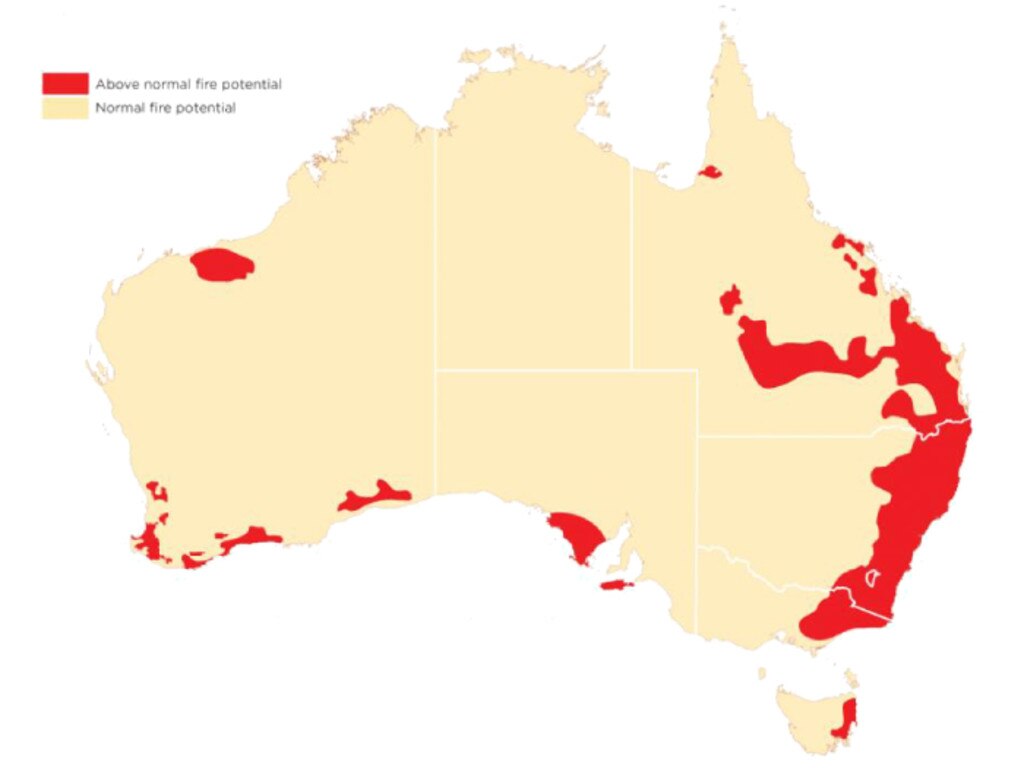
The imminent fire season is particularly dangerous this time around due to the warm and dry conditions that have prevailed all year.
“In south east Queensland and northern New South Wales, the last three years have been dry and warm – it is these conditions that are driving the severity of the current bushfires,” Dr Thornton said.
“When preceding conditions have been like this, and the bush and grass is so dry, it doesn’t take much for a fire to get going once the wind is up. Unfortunately that is what we’ve seen, not just in recent days, but over the last few months.”
RELATED: The debate over hazard reduction burns after ‘catastrophic’ fire threat
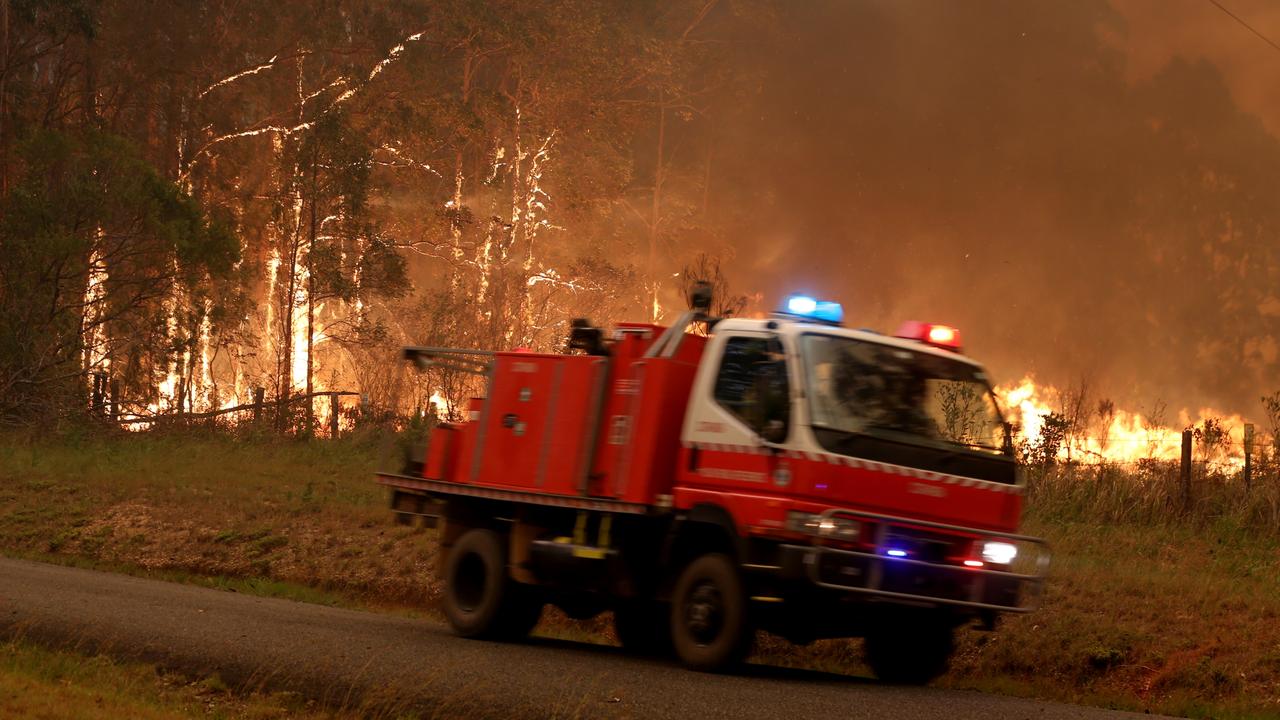
The bushfire risk is likely to intensify in the country’s south as summer progresses, The University of Tasmania’s Fire Centre Research Hub director Professor David Bowman said.
“Typically, the bad fires more down as the summer progresses,” Prof Bowman said.
“This is a spreading problem. It’s not just a southern Queensland, NSW problem – it’ll spread down to Victoria and Tasmania, and of course WA is already impacted.
“I’m sitting here in Tasmania thinking about what’s still to come. Our typical fire season is February but we’ve already had three total fire ban days in the past couple of weeks. I’m worried about the midterm.”
RELATED: Exhausted fireys’ horror night as flames take hold in rural Killabakh
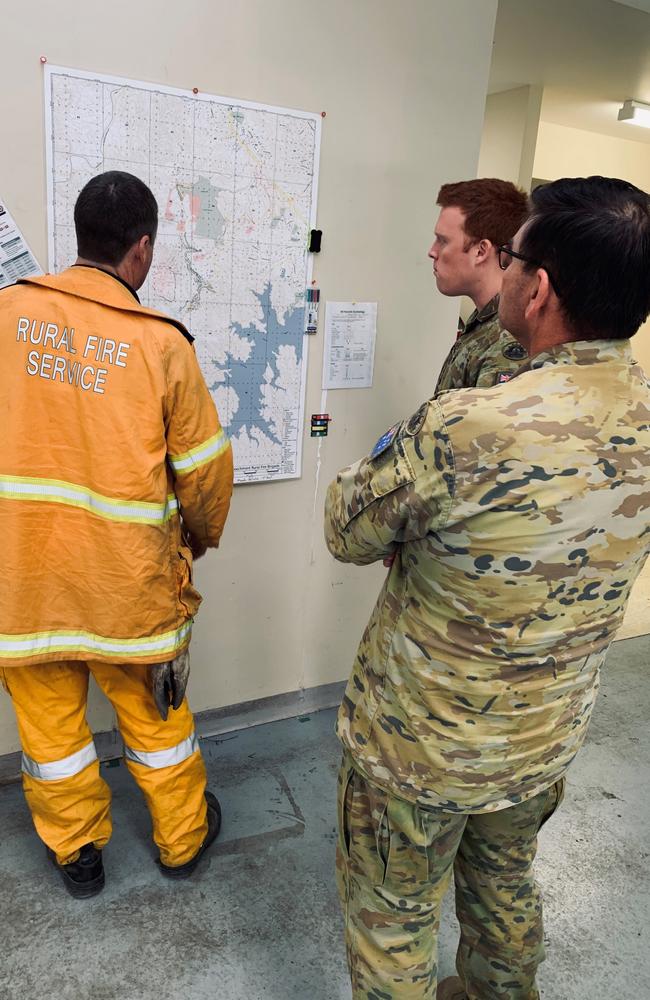
Dr Paul Read is from the Monash Sustainability Institute at Monash University, who is also the co-director of the National Centre for Research in Bushfire and Arson, also expects conditions to get worse.
“I also think it will expand northwards and southward across the whole of the Eastern seaboard,” Dr Read said.
Already stretched emergency services capabilities will continue to be put under pressure over the coming months, he said.
But until then, the focus remains on the continuing emergency situations in NSW and Queensland.
“There’s no meaningful reprieve. There’s no rainfall in this change and we’re going to continue to have warm, dry conditions dominating in the days and weeks ahead,” NSW Rural Fire Service Commissioner Shane Fitzsimmons said today.




